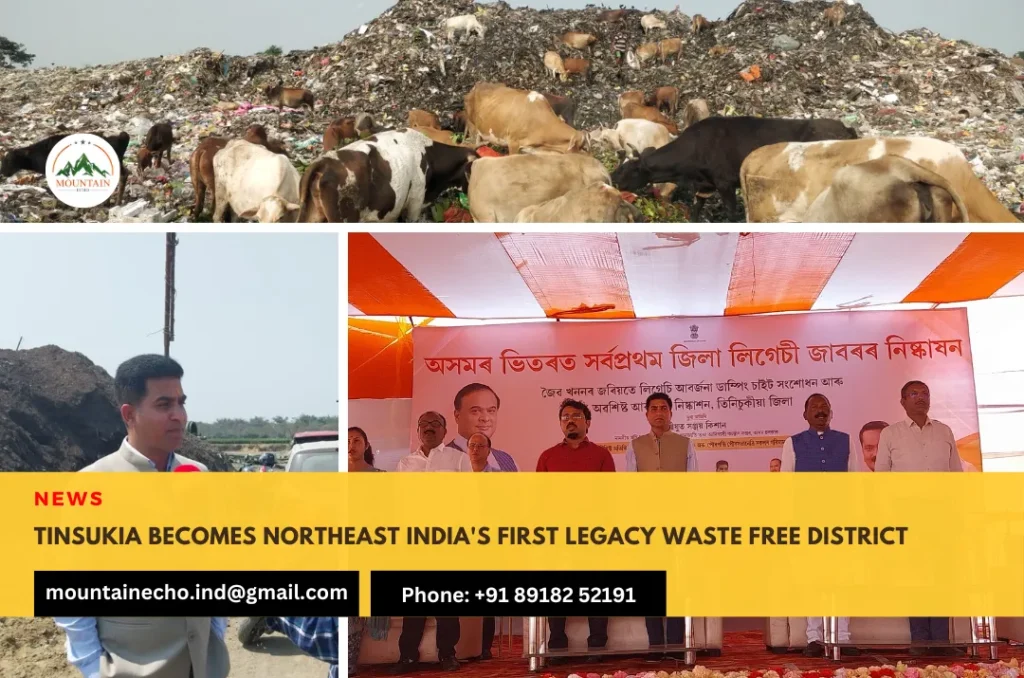Tinsukia becomes Northeast India’s first legacy waste free district
WhatsApp Channel
Join Now
Tinsukia district in Assam has achieved a remarkable feat by becoming the first district in Northeast India to be completely free of legacy waste. This significant accomplishment is the result of a collaborative effort between the Tinsukia district administration and five town boards – Tinsukia, Doomdooma, Digboi, Margherita, and Makum.
Minister Sanjoy Kishan officially launched the biomining process at the Reclaimed Dumping Ground in Tingrai on 11th March 2024, marking a significant milestone in waste management in the Northeast. This innovative approach has successfully cleared legacy municipal waste through bioremediation and biomining, a first for the region.
The initiative to eradicate garbage from the district began in March 2023. Oil India Limited played a vital role by contributing necessary funds through their CSR program, specifically designated for bio-mining old garbage dumps in Tinsukia and Makum.
Swapneel Paul, the District Commissioner of Tinsukia, remarked during the inaugural program that the accumulation of legacy waste had transformed the dumping sites of Tinsukia and Makum into mountain-like structures.
The Tingrai dumping ground has been a cause of concern for residents of the town since 1990 due to its ecological impact. The project has significantly improved the environmental, aesthetic, and social aspects of the entire area.
This large-scale project involved treating the staggering amount of accumulated waste. At the Tingrai dumpsite in Tinsukia alone, 75,000 metric tonnes of garbage were successfully processed. This tackling of waste has yielded impressive results, releiving residents of Tinsukia district of the filth around them.
The initiative wasn’t limited to Tinsukia. Bio-mining technology was effectively deployed across the district, with Doomdooma treating 18,000 metric tonnes, and Digboi and Margherita tackling 25,000 and 30,000 metric tonnes of legacy waste respectively.
The waste treatment across all sites has resulted in over 80 bighas of reclaimed land, which can now be utilized for development purposes.
Paul also stated that Dalmia Cement will utilize Refuse-Derived Fuel (RDF), a byproduct of the biomining process, in their cement factories. This initiative has positioned Tinsukia as a model district for land reclamation through the biomining of legacy waste.
A park will also be established here at a cost of Rs 3.17 crore. Additionally, there is a water body here, which will be conserved in accordance with the directives of the National Green Tribunal (NGT).
Tinsukia’s success story paves the way for other districts in the Northeast region to adopt similar strategies for waste management.
Telegram Channel
Join Now



